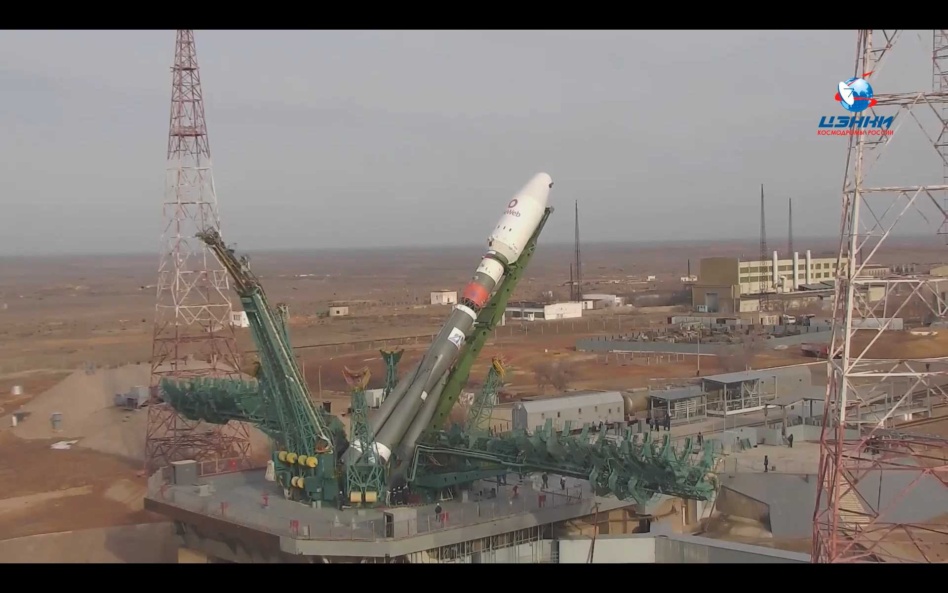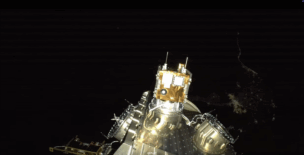Roscosmos and Arianespace are in talks to swap a batch of OneWeb satellites for several Soyuz components that have each been stranded in each other’s territory since February of last year, RussianSpaceWeb reports.
The road to today: When Russia invaded Ukraine in Feb. 2022, collaboration between Russia and Europe came to an almost immediate halt. With the ISS as a notable exception, ESA and Roscosmos pulled the plug on all commercial arrangements and forward-looking space programs.
Prior to the invasion, OneWeb was launching its constellation with Soyuz rockets. The operator had already shipped a batch of 36 satellites to Kazakhstan for integration onto a Soyuz rocket scheduled to launch March 5, 2022. Roscosmos had also been preparing boosters at a facility in French Guiana.
OneWeb’s 36 satellites were stranded in Baikonur, Kazakhstan. Meanwhile, RussianSpaceWeb reports, in its rush to decamp from French Guiana, Roscosmos left “rocket stages, containers with propellant, support hardware, and documentation” at the European spaceport. Arianespace has retained custody of that equipment.
Former Roscosmos head Dmitry Rogozin originally ordered that the OneWeb satellites stay put in Baikonur. Current agency head Yuri Borisoz has apparently been more open to negotiations concerning their repatriation.
Keep the trains running: Since losing access to launch on Soyuz, OneWeb has partnered with LEO broadband frenemy SpaceX and the commercial arm of ISRO to finish deploying its V1 constellation. Still, the short lifespan of satellites in LEO translates to a short, capital-intensive replenishment cycle, not to mention keeping replacements and spares on deck.
So far, OneWeb has launched 544 satellites. Its complete constellation will consist of 588 operational birds (648 including ground and on-orbit spares).
OneWeb is already tight on funds, having gone through bankruptcy, a bail out, and now, a possible business merger with Eutelsat. Losing access to 36 satellites in Kazakhstan rather than lofting them to orbit didn’t help.
A possible complication? As Eric Berger wrote in his Rocket Report newsletter, the logistics of sending Soyuz hardware home are…complicated:
- “Dozens of Russian specialists from the sanctioned RKTs Progress would have to obtain necessary visas and find a route to travel to French Guiana to support the preparation and loading of the Russian hardware on cargo ships for an 8,000-kilometer journey from the port of Cayenne to St. Petersburg,” Berger wrote.




